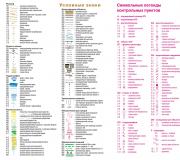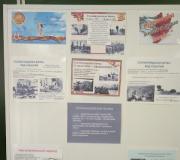How the Internet changed life. Changing people's lifestyles
The formation of the information society significantly affects people's daily lives. Based on the examples already available, it can be foreseen that the changes will be profound. Thus, the mass introduction of television in the 60–70s of the twentieth century significantly changed people’s lives, and not only for the better. On the one hand, millions of people have the opportunity to access the treasures of national and world culture, on the other hand, face-to-face communication has decreased, more stereotypes instilled by television have appeared, and the range of reading has narrowed.
Let us consider the individual components of the way of life, analyzing what has already happened and what is emerging in our time.
Job. According to a sociological study conducted in the United States, up to 10% of workers can already do their work without leaving home, and 1/3 of all newly registered companies are based on the widespread use of self-employment, which does not involve regularly coming to the office.
Studies. In a number of countries, the number of children who do not attend school and are taught at home with the help of computer programs and telecommunications is increasing. If this trend continues, the school will face the most serious danger since its inception as a mass public institution. If we consider that school not only teaches, but also instills in children the skills of socialization and social behavior, then such development causes a certain concern.
Leisure activities are changing before our eyes. Computer games, which already occupy a significant amount of time for some people, are being transformed into network games with the participation of several remote partners. The time spent “walking” on the Internet without a specific goal, as well as on the so-called “chat”, with not very meaningful exchange of messages, is growing. At the same time, educational trips to educational sites, virtual museums, etc. are also implemented. As mentioned above, information culture is only a part of universal human culture, and the form of leisure is determined primarily by the general culture of a particular person.
The recent achievement of Internet technologies - shopping for real goods in a virtual online store - is already beginning to significantly affect the trading system.
The human home tends to become increasingly “informatized.” Houses are already being put into operation, in which, instead of a wiring harness (electrical wiring, telephone, television, security and fire alarms, etc.), only one power cable and one information cable are included. The latter takes care of all information communications, including the provision of many cable television channels, Internet access, etc. A special electronic unit in such an apartment will control all devices, including household appliances and life support systems, and help the inhabitant of the apartment live as comfortably as possible. Such a house is called “smart”.
Since for many people the car has become an extension of their environment, the emergence of “smart cars” is also important. Such a car, in addition to the already mandatory microprocessor devices that serve its technical part, is constantly connected with city information services, which suggest the most optimal route at the moment (taking into account how busy the roads are). In addition, a “smart” car is connected to its owner’s “smart house” and this house can be controlled from it.
There is no doubt that the Internet has changed the world significantly. Some believe that these are positive changes, while others are sure that the global Network has brought a lot of problems to humanity. The truth is probably somewhere in the middle. In this review, we have collected facts that confirm that with the advent of the Internet, the world has become completely different.
1. Life “online”

Today people are not “out of touch”. In the bathroom, on the subway - everything is always “online”.
2. Hypochondria

People began to self-diagnose, looking for symptoms of their condition on the Internet. While this has increased awareness regarding the disease, the prevalence of hypochondria has also greatly increased.
3. Funeral notebook

Phone books, floppy disks, CDs... no one uses these things anymore. Even the watch industry had to adapt to the Internet.
4. Special camps for Internet addicts

In China there are special camps for Internet addicts. At the same time, the majority of Internet users in China access the Internet from mobile phones, not from PCs.
5. 6% of earthlings are Internet addicts

Many researchers consider Internet addiction as a mental disorder. According to recent data, 6% of the world's population has this disorder.
6. Ubiquitous webcams

These days, webcams are ubiquitous. However, almost no one knows that the first remote camera was actually created to monitor the coffee pot at Cambridge University.
7. Multitasking

Most people today “multitask.” At a minimum, it’s worth looking at the number of open tabs in your browser. At the same time, labor productivity and efficiency actually decreased.
8. Impatient users

Don't forget the waiting time for the request to open the link. 50% of Internet users close a video link if it does not load within 10 seconds.
9. Frame length is only 2 seconds

Reduced levels of patience (we're talking about waiting for videos to load) aren't the only problem. The average frame length of an English-language film has dropped from 12 seconds in 1930 to just 2 seconds in 2015.
10. 204 million emails per minute

Only the parents of those reading this article remember the postal service. Today everyone only uses email. In fact, people send approximately 204 million emails every minute.
11. Total 623 sites

In 1993, there were only 623 websites on the Internet. Today, more than 100,000 domain names are registered daily.
12. Encyclopedias vs. Wikipedia

Encyclopedias were once popular. Today they are simply no longer needed due to the fact that everything can be found on the Internet. As for Wikipedia, public opinion about the site has changed dramatically. 10 years ago this was a site that everyone warned about being unreliable. Today, people understand the danger of unreliability of this information, but, as a rule, they check its sources as much as possible.
13. Only 5% of 7700 languages
Global network: the right to access the Internet.
In 2010, Finland became the first country to declare Internet access a legal right. However, still only 37.9% of people in the world have access to the Internet at least once a year (the number of people with regular Internet access is much lower).
People “living on the Internet” easily believe any nonsense published there, no matter how ridiculous it may be, diagnoses Doctor Web analyst Pavel Shalin. And he adds: the lack of the habit of thinking among many Internet users is progressing every day.

This is the price of IT progress. And this account remains open. The Internet continues to actively invade our lives and change the most familiar things in unpredictable ways. As a plus, so, alas, and a minus.
Mozgov.NET
For those who honestly want to learn and find useful information, the Internet provides many advantages. But for those who don’t want to, unfortunately, too.
Immersed in social networks and search engines since childhood, we remember not “how to do it,” but “where to find it, how to do it.” “So-called clip thinking develops, concentration of attention decreases,” says psychologist Alexey Nashchekin. “On the Internet, information is usually presented accessible and in short blocks, so the brain gets used to the fact that it is processed easily and in 5 minutes. Many teachers, both school and and university students, note a decreased concentration of attention because of this. Listening to an hour and a half lecture or solving serious problems on your own is no longer possible."
The wide availability of information and the lack of the need to make serious efforts to find it atrophies the skills of analysis and critical thinking for some. “The very important ability to find and compare facts, build logical conclusions and form one’s own judgment on the issues under study has replaced pressing the “copy” and “paste” buttons,” emphasized Pavel Shalin. “Hence the reduction in the threshold of criticality in the perception of information.”
Fake smile
Another interesting observation by psychologists: on the Internet, a person strives to correspond to his imaginary image. “All people post their best moments on social networks, which can often lead to low self-esteem, because you don’t see other people’s failures, but you know about your own,” noted Alexey Nashchekin. “Again, in order to fit in with your virtual “friends,” you may want to lie.” .
According to Sergei Gorin, a psychiatrist and teacher at the Moscow Center for Neurolinguistic Programming, communications on the Internet can in many ways be likened to the carnival culture that existed in the Middle Ages: “For several days a year during holiday carnivals, people abandoned a number of conventions during contacts and behaved more freely, hiding behind anonymity - carnival masks and a general atmosphere of fun, which allowed any barb to be presented as an evil joke."
Both the carnival and the Internet not only create the illusion of anonymity for the user, it allows you to pretend to be anyone. “On the global Web, you are what you wrote about yourself, and besides, you can put any beautiful photo instead of yours,” noted Sergei Gorin.
The downside is that the troubles of people on the Internet are not taken seriously. People are like characters in computer games, so regular Internet users are much less able to empathize, psychologists say. Thus, the development of social networks destroys the social connections that they were supposed to strengthen.
Fake accounts are not so bad; it turns out that when communicating on the Internet, people begin to value their contacts less. “You can always make new acquaintances on the Internet if there is a misunderstanding with old friends. Hence the desire to change the environment,” stated Alexey Nashchekin.
Weekend without electricity
There is always something happening on the Internet. “There are a lot of acquaintances there, everyone posts their news, photos, it seems that this is very important - hence the desire to constantly check the social network - news from friends or messages,” explained Alexey Nashchekin.
In addition, most entertainment on the Internet is aimed at the mass user, which means that it is not difficult to get some kind of achievements (best player, most active user, etc.). “If there are problems in real life, then they can always be compensated for by such achievements, but then it’s difficult to “get off” from this,” Nashchekin noted.
Internet addiction has the same symptoms as drug addiction or alcoholism. The need to play is constantly growing, and a person experiences severe discomfort if he cannot sit down at a computer, smartphone or tablet. “Perhaps I would never have admitted to myself an Internet addiction if it weren’t for my child,” Alexander Erenko, an employee of one of the Russian direct sales and network marketing companies, told RG. “Children copy their parents, and one day I was horrified to find out that my son can no longer eat without a laptop."
Psychologists explain Internet addiction by unresolved internal problems. “The emotionally immature psyche is loaded with a lot of information contained on the Internet and cannot stand it,” explains professional psychologist-psychotherapist, founder of the Center for Family Psychology and Psychotherapy Artem Tolokonin. “It is deformed, giving a wide variety of deviations as a result. But can we blame it on Internet and gadgets? The Internet makes the world informationally transparent and clearly demonstrates what is happening in society. And the degree of neurosis in society is growing. Only the reason for this is not gadgets and the Internet, but the frantic rhythm and lifestyle imposed on us.
The Internet gives us unlimited potential for communication and obtaining information. But that's why he's dangerous
What to do? Think. Don't give in to the Internet, resist. How? For example, like Alexander Erenko: “We regularly arrange forays out of town, demonstratively turn off all electrical appliances and spend time in the Indian way. I recommend that those who are faced with the problem of addiction to gadgets and the Internet in their family hold an unplugged weekend at least twice a month - weekend without electricity."

Infographics: Infographics "RG" / Maria Pakhmutova / Yulia Voronina
People “living on the Internet” easily believe any nonsense published there, no matter how ridiculous it may be, diagnoses Doctor Web analyst Pavel Shalin. And he adds: the lack of the habit of thinking among many Internet users is progressing every day.
This is the price of IT progress. And this account remains open. The Internet continues to actively invade our lives and change the most familiar things in unpredictable ways. As a plus, so, alas, and a minus.
Mozgov.NET For those who honestly want to learn and find useful information, the Internet provides many advantages. But for those who don’t want to, unfortunately, too.
Immersed in social networks and search engines since childhood, we remember not “how to do it,” but “where to find it, how to do it.” “So-called clip thinking develops, concentration of attention decreases,” says psychologist Alexey Nashchekin. - On the Internet, information is usually presented in an accessible way and in short blocks, so the brain gets used to the fact that it is processed easily and in 5 minutes. Many teachers, both school and university, note a decreased concentration of attention because of this. Listening to an hour and a half lecture or solving serious problems on your own is no longer possible.”
The wide availability of information and the lack of the need to make serious efforts to find it atrophies the skills of analysis and critical thinking for some. “The very important ability to find and compare facts, draw logical conclusions and form one’s own judgment on the issues under study has replaced pressing the ‘copy’ and ‘paste’ buttons,” emphasized Pavel Shalin. “This also implies a lowering of the threshold of criticality in the perception of information.”
Fake smile
Another interesting observation by psychologists: on the Internet, a person strives to correspond to his imaginary image. “All people post their best moments on social networks, which can often lead to low self-esteem, because you don’t see other people’s failures, but you know about your own,” noted Alexey Nashchekin. “Again, in order to fit in with your virtual “friends,” you may want to lie.”
According to Sergei Gorin, a psychiatrist and teacher at the Moscow Center for Neurolinguistic Programming, communications on the Internet can in many ways be likened to the carnival culture that existed in the Middle Ages: “For several days a year during holiday carnivals, people abandoned a number of conventions during contacts and behaved more freely, hiding behind anonymity - carnival masks and a general atmosphere of fun, which allowed any barb to be presented as a joke, albeit an evil one.”
Both the carnival and the Internet not only create the illusion of anonymity for the user, it allows you to pretend to be anyone. “On the Global Network, you are what you wrote about yourself, and besides, you can put any beautiful photo instead of yours,” noted Sergei Gorin.
The downside is that the troubles of people on the Internet are not taken seriously. People are like characters in computer games, so regular Internet users are much less able to empathize, psychologists say. Thus, the development of social networks destroys the social connections that they were supposed to strengthen.
Fake accounts are not so bad; it turns out that when communicating on the Internet, people begin to value their contacts less. “You can always make new friends on the Internet if there is a misunderstanding with old friends. Hence the desire to change the environment,” stated Alexey Nashchekin.
Weekend without electricity
There is always something happening on the Internet. “There are a lot of acquaintances there, everyone posts their news, photos, it seems that this is very important - hence the desire to constantly check the social network - news from friends or messages,” explained Alexey Nashchekin.
In addition, most entertainment on the Internet is aimed at the mass user, which means that it is not difficult to get some kind of achievements (best player, most active user, etc.). “If there are problems in real life, then they can always be compensated for by such achievements, but then it’s difficult to “jump off” from this,” Nashchekin noted.
Internet addiction has the same symptoms as drug addiction or alcoholism. The need to play is constantly growing, and a person experiences severe discomfort if he cannot sit down at a computer, smartphone or tablet. “Perhaps I would never have admitted to myself that I was an Internet addict if it weren’t for my child,” Alexander Erenko, an employee of one of the Russian direct sales and network marketing companies, told RG. “Children copy their parents, and one day I was horrified to learn that my son could no longer eat without a laptop.”
Psychologists explain Internet addiction by unresolved internal problems. “An emotionally immature psyche is loaded with a lot of information contained on the Internet and cannot stand it,” explains professional psychologist-psychotherapist, founder of the Center for Family Psychology and Psychotherapy, Artem Tolokonin. - It is deformed, giving a wide variety of deviations at the output. But can the Internet and gadgets be blamed for this?” The Internet makes the world informationally transparent and clearly demonstrates what is happening in society. And the degree of neurosis in society is growing. Only the reason for this is not gadgets and the Internet, but the frantic rhythm and lifestyle imposed on us.
The Internet gives us unlimited potential for communication and obtaining information. But that's why he's dangerous
What to do? Think. Don't give in to the Internet, resist. How? For example, like Alexander Erenko: “We regularly arrange forays out of town, demonstratively turn off all electrical appliances and spend time like Indians. I recommend that those who are faced with the problem of dependence on gadgets and the Internet in their family should spend an unpugged weekend - a weekend without electricity - at least twice a month.”
How the Internet changed my life
Among all the discoveries that I have made in my life, there is one huge and obscure one that makes me forget all the others - this is the discovery of the Internet. I don’t remember well when my first immersion into the virtual world of millions of computers took place, but the memory of the first page I landed on remains in my memory. Joy is what I felt then and what I will never forget, I will never fully understand the reason for that joy. Maybe my old dream came true, maybe the page was very beautiful, or maybe it made me happy miracle, with which strange codes in some city far from me traveled thousands of kilometers, passed along telephone wires and were displayed on the screen in colors, figures, and words understandable to humans. Yes, there is no other way to call it. Miracle... It seemed inexplicable to me then that on the other side of the world, somewhere inside a humming machine, on a disk rotating at incredible speed, there was an Internet page consisting of zeros and ones, collected in groups and carrying the most important thing in a person’s life - information. And these numbers are put together like a children’s construction set in a tiny silicon crystal, then they are carried along optical bundles, but not in the form of electrical signals, but in the form of beams of light. People have turned elusive photons into information couriers, mirrored walls of wires into stations where light changes direction, like a horse courier. And the most amazing thing seems to be how cleverly signals control signals, machines control machines. Only thanks to the joint actions of thousands of computers will your letter never get lost, it will definitely reach where it needs to go, and the selected page, at the behest of a mouse click, will appear on the display no matter what. And the hardware - microcircuits, boards, disks - changed my life once and for all. I stopped going to the library often in the cold, because there is no need to look for the answer to a question in hundreds of books, leaf through the wrinkled pages of textbooks, just enter the desired word, press the enter key and get a huge list of sites where you will definitely find an answer to any complex question. For the first time in my life, I had my own wallet, albeit unreal, albeit electronic, but with money I earned. Yes, the Internet does not exist only to extract banknotes from people. You can make money on the Internet, and for this you do not need licenses, papers, contracts, bank accounts with gigantic numbers - everything is simple and clear here. Everyone who knows how to do something reveals their creations to everyone, for which people pay money. I met interesting people on forums, and now I can ask them for advice, and they will immediately help me. My life has become more interesting. I started writing books, they advised me to read articles, I published my works on the website - they made comments in the guest book, albeit strict, caustic, but... fair and necessary, helping me rise up the creative ladder. I stopped spending money on envelopes and waiting three weeks for a response - by email, a letter of any importance with a drawing, music, video clip will reach a friend in a minute, safe and sound. On the Internet I found very interesting sites about Harry Potter and other books, treasure troves of advice for aspiring writers; I subscribed to newsletters on online business, website creation, promoting my own project, world news and new products from the electronic store, thanks to which I stopped freezing at the book market stalls, and at home, in warmth and comfort, I order the book I need, and for this I just need You need to click the mouse a couple of times. I don’t even know how my life would have developed without the Internet, whether it would have had the meaning it has now. I had a chance to learn more about literature, painting, the history of Russia and Kuban, to understand how this huge, complex world in which I live works. The miracle called the Global Internet gave me the opportunity to become famous, gain recognition from people, earn money for myself and my parents, and help my native village. And in the universe of hundreds of millions of computers, everything is simpler than it seems: whoever gives more to others is more important than others. And you won't fool anyone. And, besides, the Internet changed my worldview, made me understand one small truth: if people lived as friendly as machines, if everyone fulfilled their duties, all the people on Earth would be happy!




